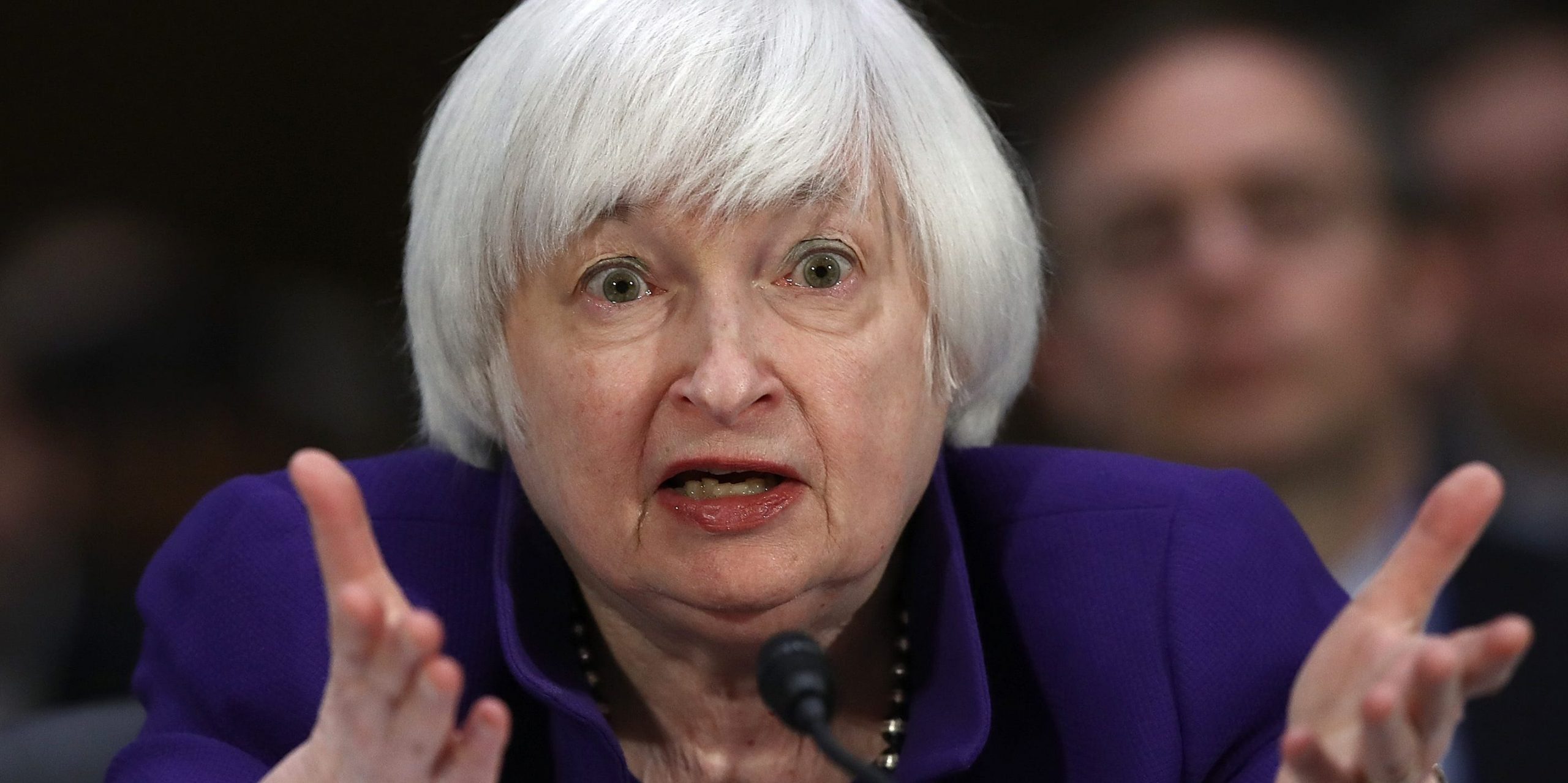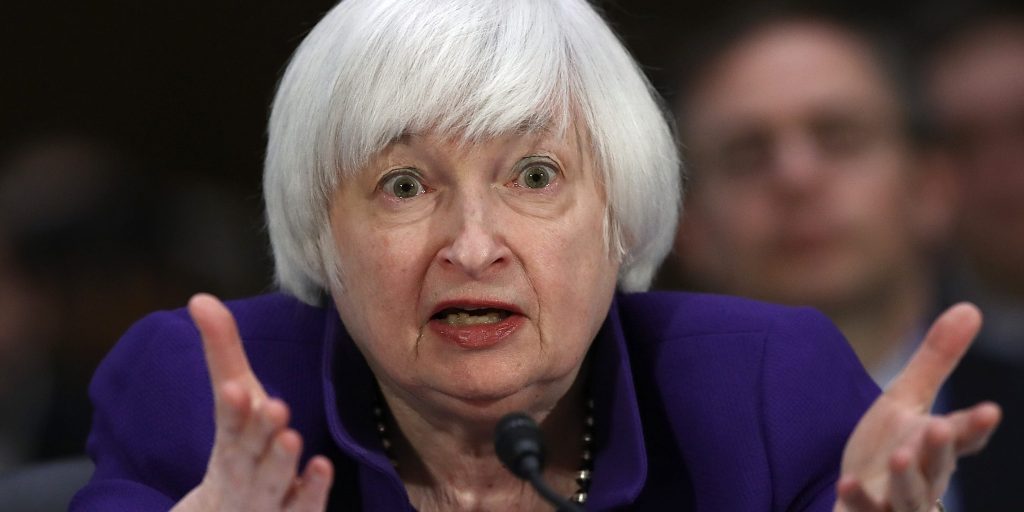
- On Wednesday Secretary Yellen asked Congress to extend a July deadline to pay back some of the federal debt.
- Without an extension, she warned of a "catastrophic" default that could hurt economic recovery.
- Some in the GOP have signaled they want spending cuts in exchange for increasing the debt ceiling.
- See more stories on Insider's business page.
Treasury Secretary Janet Yellen urged Congress on Wednesday to extend a July 31 deadline to pay down a portion of the federal government's $28 trillion in debt to investors and foreign governments.
Without the extension, she warned of an "absolutely catastrophic" default that would imperil the nation's economic recovery from the pandemic.
"I think defaulting on the national debt should be regarded as unthinkable," she told the Senate Appropriations Committee, calling it "utterly unprecedented in American history for the US government to default on its legal obligations."
Though borrowing is a routine cycle the federal government uses to keep the country running through the sale of bonds, it's reaching its "debt ceiling" on July 31 and needs to service its debt before it can borrow more. The Treasury has some ability to keep payments flowing beyond that date, but Yellen said it could exhaust those measures sometime in August during the month-long Congressional recess. Increasing the debt ceiling does not mean additional federal spending.
If the federal government defaults, Yellen said it could jumpstart a chain reaction of cash shortages starting with US bond holders, which include individuals, businesses, and foreign governments.
"I believe it would precipitate a financial crisis," Yellen said. "It would threaten the jobs and savings of Americans and at a time we're recovering from the COVID pandemic."
Congress last suspended the borrowing limit in July 2019 for two years under President Donald Trump. Yellen also emphasized the pandemic is causing uncertainty around the Treasury's emergency powers to step in with emergency payments if it became necessary.
Some Republicans have signaled they will press for spending cuts in exchange for signing onto a debt ceiling increase, despite supporting a surge of red ink under Trump. Among many Democrats, memories of a 2011 brawl between House Republicans and President Barack Obama on the debt ceiling are still fresh, as it sent stocks tumbling and caused the first downgrade to US credit.
"This is a page from the Obama-era economic sabotage playbook, and I'm not going to let Republicans play games with the economy for their political benefit," Sen. Ron Wyden of Oregon, chair of the Senate Finance Committee, told Insider in April.

